KAMPA, a national company in the market since 2002, produces hammocks and accessories that accompany nature lovers on their trails, in the countryside, on the beach, and in bike touring and mountaineering activities. Made of polyamide (nylon), a breathable and quick-drying fabric, their hammocks are characterized by their ease of transport: they weigh less than 500 g and support over 150 kg.
Connection São Paulo, Nepal, Fortaleza, Itamonte
Alexandre Palmieri has two great passions: traveling and sharing stories with people. From this combination, his desire to become an entrepreneur was born. Living in his “farm office” in the rural area of Itamonte, Minas Gerais, alongside Samba, the horse he adopted, and with a view of the Parque do Papagaio, he runs KAMPA, which gives him non-negotiable values: flexibility and the opportunity to be in nature.
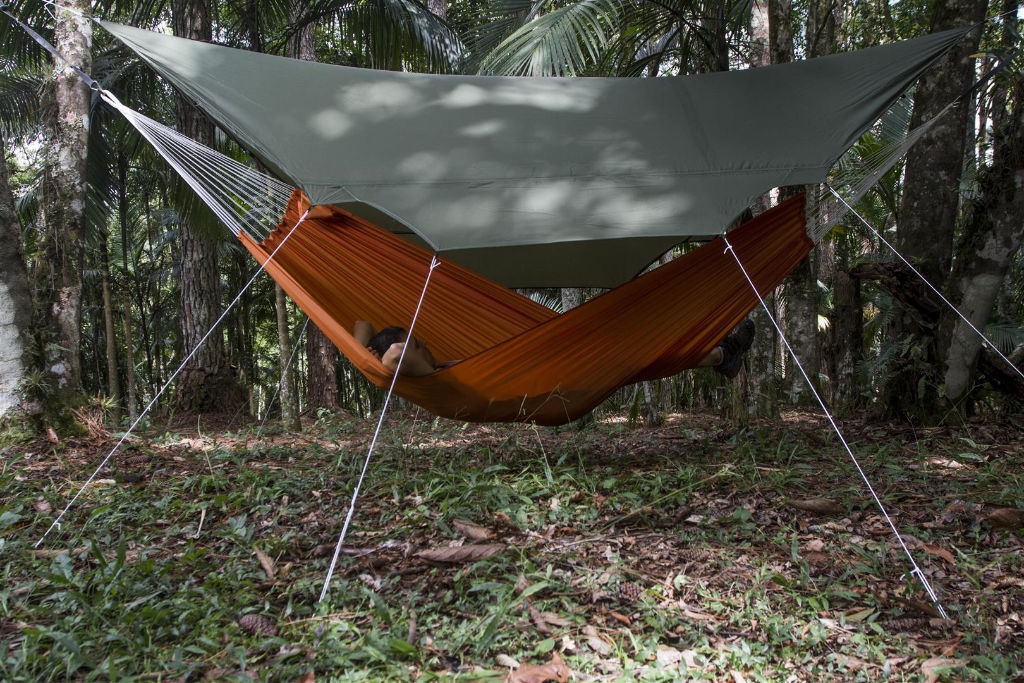
Born in Piracicaba (SP), Palmieri — as he is known in the outdoor market — initially planned to graduate in business administration and become a financially successful executive. One semester before finishing college, he traveled to Australia to improve his English. There, he met a backpacker who sparked his desire — and courage — to venture through Nepal. He set out on an expedition through Asia carrying a hammock made by the Cearense (from Ceará, a state in the Northeast of Brazil) grandmother of a friend, Dona Isolda, which caught the attention of travelers from around the world.
During the trip, Alexandre encountered an extremely poor but happy population, which led him to a radical shift in values. Connected with an essence he had just discovered, Palmieri returned to Brazil a year later determined to work with something related to travel. With the hammock in mind, his mentor became none other than Dona Isolda herself. At the age of 80, she taught Alexandre how to handcraft hammocks one summer afternoon in 2002, in Fortaleza.
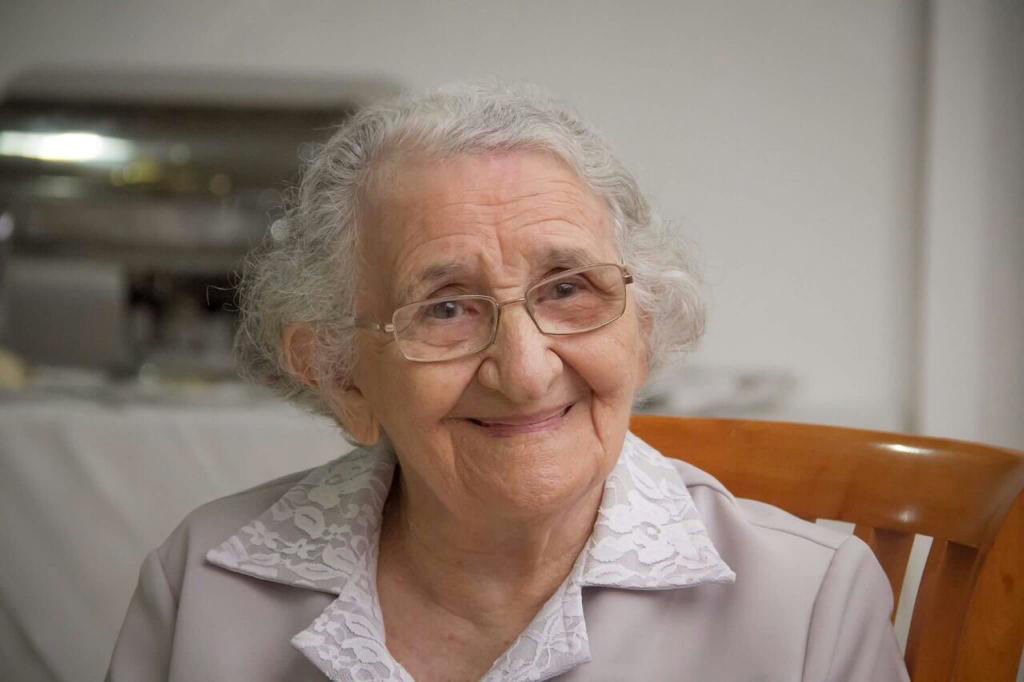
Dona Isolda
Social and environmental responsibility and conscious consumption at Kampa
Following tradition, Alexandre chose to work with domestic raw materials, reducing the environmental impacts caused by imported transport, and with local labor, contributing to reducing social inequality. At his side since the beginning of this journey is the seamstress from Piracicaba, Nicéia.
Together, they make hammocks designed for a long life and with no leftover materials, which prevents waste and directly impacts the saving of water and energy used in production. “The hammocks are durable. That vicious circle of producing more to sell more is not for KAMPA,” Palmieri says.
According to Alexandre, some customers bought their hammocks in 2004 and have never had any problems. Defects during the company’s three-month warranty period are also rare. When hammocks reach the end of their lifecycle, the company facilitates disposal through the KAMPA Recycling Program: customers send in their used hammocks and receive a discount on a new one. The material that would otherwise go to the landfill is given to an artisan who makes cushions.
Environmental awareness is also present in the brand’s packaging, which is made of kraft paper, with no plastic and reused cardboard boxes. “If companies adopted small actions like this, they wouldn’t stop being profitable and would take a big step toward changing the world. Even if it costs a bit more, I’ll do it. I believe that if we want change, we must start at home.”
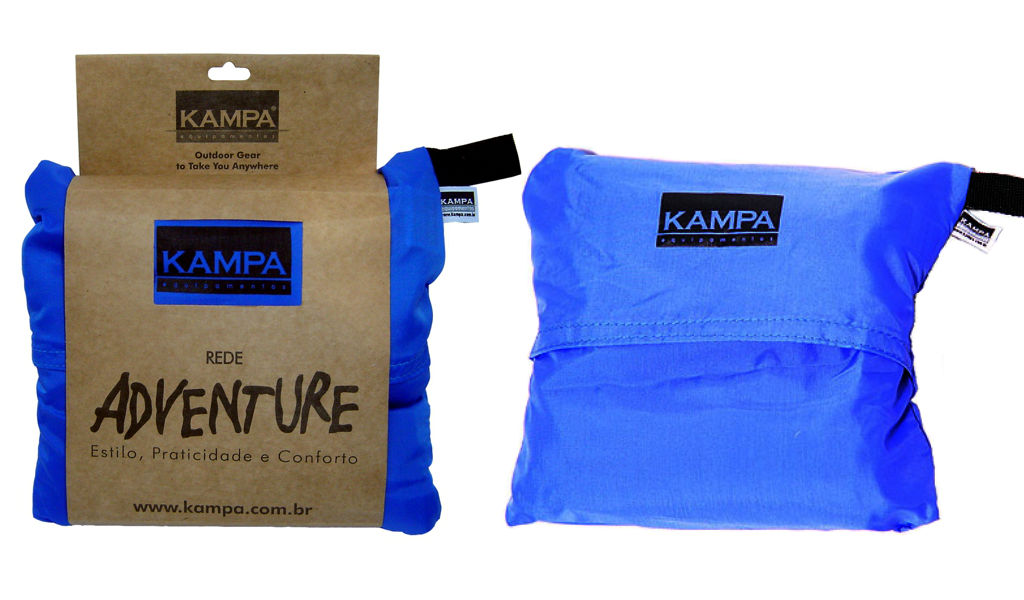
What do you do for the world?
KAMPA was designed to be a lean yet profitable company, allowing Alexandre to live in the moment, connected with nature: “I don’t want to have a bank account full of money and no time.” For that reason, Alexandre may never be interviewed on that podcast, but his life story and entrepreneurial journey add greater value to his company: the power to inspire and transform lives — something he is already doing.
Educating to preserve
In addition to supporting, for over 10 years, NGOs such as Outward Bound and Expedicionários da Saúde, KAMPA also takes part in social and environmental projects in Itamonte, such as a free course on minimum-impact techniques, in partnership with Milla Expedições, a local trekking and hiking guide and outdoor educator.
The first class included ten influencers who reached more than 150,000 people by sharing what they learned on social media. Their “currency of exchange” was the commitment to give free lectures and workshops after becoming instructors. For 2024, the idea is to bring together five park managers and five mountain guides to share their views on practicing minimum-impact techniques during a two-day mountain camp, combining hands-on training and discussions on the effectiveness of the practices.
Alexandre and Milla’s goal is to attract support from companies as a way for them to give back to society for everything nature provides to their businesses. After all, if natural areas and parks cease to exist, there will be no reason for people to buy backpacks and outdoor equipment. “The course booklet includes a phrase that guides me: ‘the incentive to preserve natural areas comes 90% from education and only 10% from laws and regulations.’ Milla and I are small, but we believe this grassroots work can reach big companies,” says Alexandre, who purchased a 13-hectare property in Itamonte to dedicate to agroforestry — another legacy he leaves for the region.
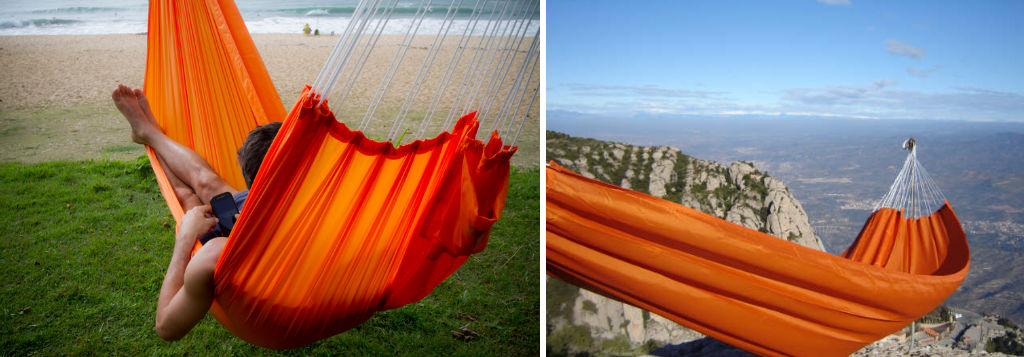
Creating opportunities for future generations
Palmieri and Milla are also collaborating on an emerging social project aimed at local youth: a guide-training school designed to encourage them to remain in their hometowns with their families after finishing school. The goal is to train them to lead rural and mountain tourism. “Young people graduating in Itamonte have no professional prospects. They no longer want to work in the fields and help their parents milk cows — it’s a tough routine. So, they either leave or stay behind without a future. On the other hand, outside guides come, take advantage of our natural beauty, and exploit the region without giving anything back to the town.”
Alexandre says he has already given two talks at the local state school to tell the story of KAMPA and inspire young people to follow their dreams. “After showing the 22 countries I backpacked through, I show a picture of our region and say: ‘I traveled to all these places, and this was one of the most beautiful. Do you know where it is?’ No one knows! I do this to make them value the region they live in — it’s beautiful, and they need to know it.”
Collective reward
KAMPA grew through word of mouth among outdoor guides, travelers, and retailers. Soon, its hammocks became a reference in the outdoor market. “My greatest joy was always visiting stores and chatting with the salespeople — who are often the owners themselves — about my trips, testing products with them, and building friendships. I got to know their families; we even traveled together.”
Alexandre didn’t accumulate wealth, but he carries a backpack full of stories. Among them, one he remembers with pride and emotion took place during a crossing of the Serra do Papagaio. “I was with a group, and we stopped at the park headquarters to talk to the manager. He said: ‘You, who like camping, are going to love this.’ He pulled out a KAMPA hammock and asked me to lie down. He had no idea I was the brand’s creator and still praised the hammock as if it were his own, pointing out its qualities. When I finally told him who I was, he hugged me and thanked me,” Alexandre recalls. Since then, whenever he meets someone using his hammock, he asks — without introducing himself — what they think of the product.
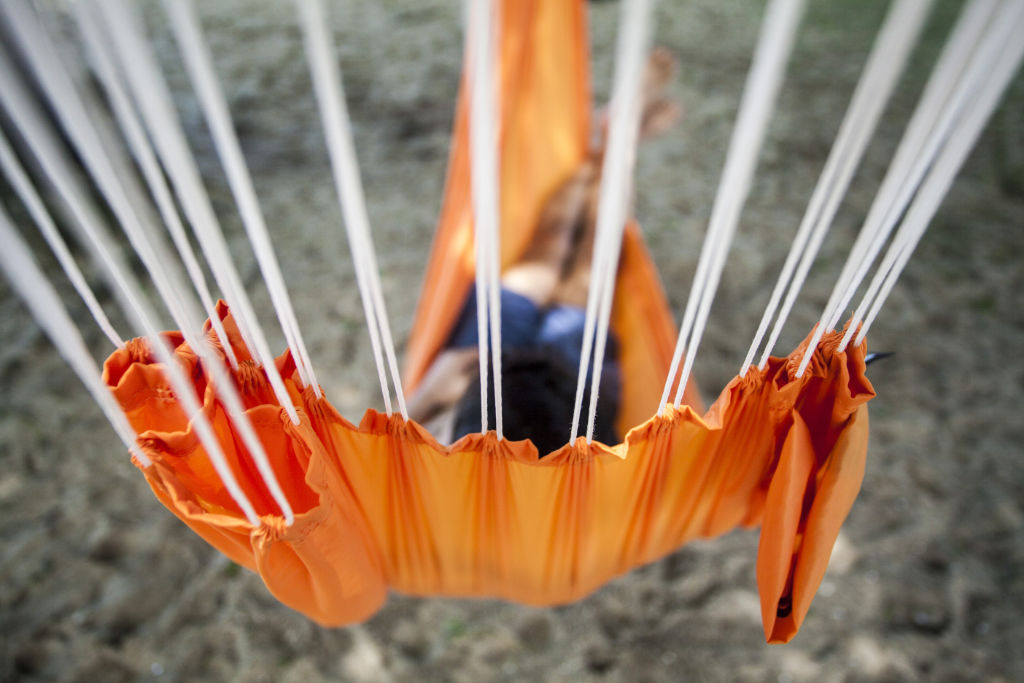
Competing with e-commerce services that sell products from the other side of the world — often with free shipping — is the greatest challenge not only for KAMPA but also for other national outdoor brands. “Given this reality, I’m thinking of new ways to minimize impact without changing my essence or falling into the hands of big corporations. I don’t want to compete with products coming from Asia,” concludes Alexandre Palmieri.
This post is also available in: Português (Portuguese (Brazil)) Español (Spanish)
